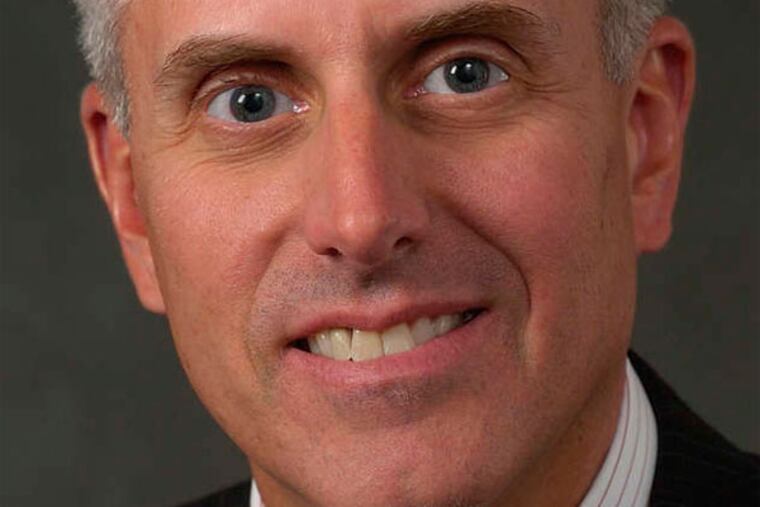An experiment in using Medicaid
This is a time of widespread experimentation in ways of organizing and paying for health care, all in an effort to get better results for less money.

This is a time of widespread experimentation in ways of organizing and paying for health care, all in an effort to get better results for less money.
Jeff Petty, chief executive of Wesley Enhanced Living, an operator of continuing-care retirement communities in the Philadelphia region, hopes there is room for at least one more experiment.
At the core of Petty's idea is the ability of retirement communities, such as those he operates, to use Medicaid to finance the care of seniors before they get so sick that they need to be in a nursing home. Medicaid currently pays for nursing-home care after a resident has exhausted his or her finances.
Petty is convinced the change would keep residents healthy longer and save more money overall for Medicaid and Medicare than the current focus on trimming costs surrounding hospital stays.
"The real savings is in avoiding the first hospitalization," Petty said in an interview this week. "If you can do that, if you can avoid or delay the onset of a chronic condition, that's where you're really going to start racking up money," he said.
It's been a hard sell for Petty, because doing something new in an arena dominated by government payers is extremely difficult.
But Petty, who has been CEO of Hatboro-based Wesley since 2003, got some traction this summer when U.S. Rep. Mike Fitzpatrick (R., Pa.) introduced a bill, the Medicare Residential Care Coordination Act of 2013, that would allow Petty to test his idea.
It would allow five states to test new models of coordinated care in continuing-care retirement communities, which seniors enter while still capable of living independently and where they can remain even if they need nursing-home care.
"The idea is to circumvent costly and risky hospitalizations," Fitzpatrick said.
The Affordable Care Act required the Centers for Medicare and Medicaid Services, which administers the two large federal health insurance programs, to explore innovations in 18 areas, but that didn't help Petty.
"Jeff didn't quite fit into the mainstream of some of the innovative programs in the ACA, so he went directly to Congress and is trying to create a bit of a hybrid, multisite demonstration model, and we like that," said Larry Minnix, president and CEO of LeadingAge, a trade group for not-for-profit aging-services providers.
"We think he's onto something, and we are in an era when innovative ideas need to be explored and tested."
Now, Petty's job is to continue trying to drum up support by selling his idea to more members of Congress. "It's a civics lesson," Petty said.